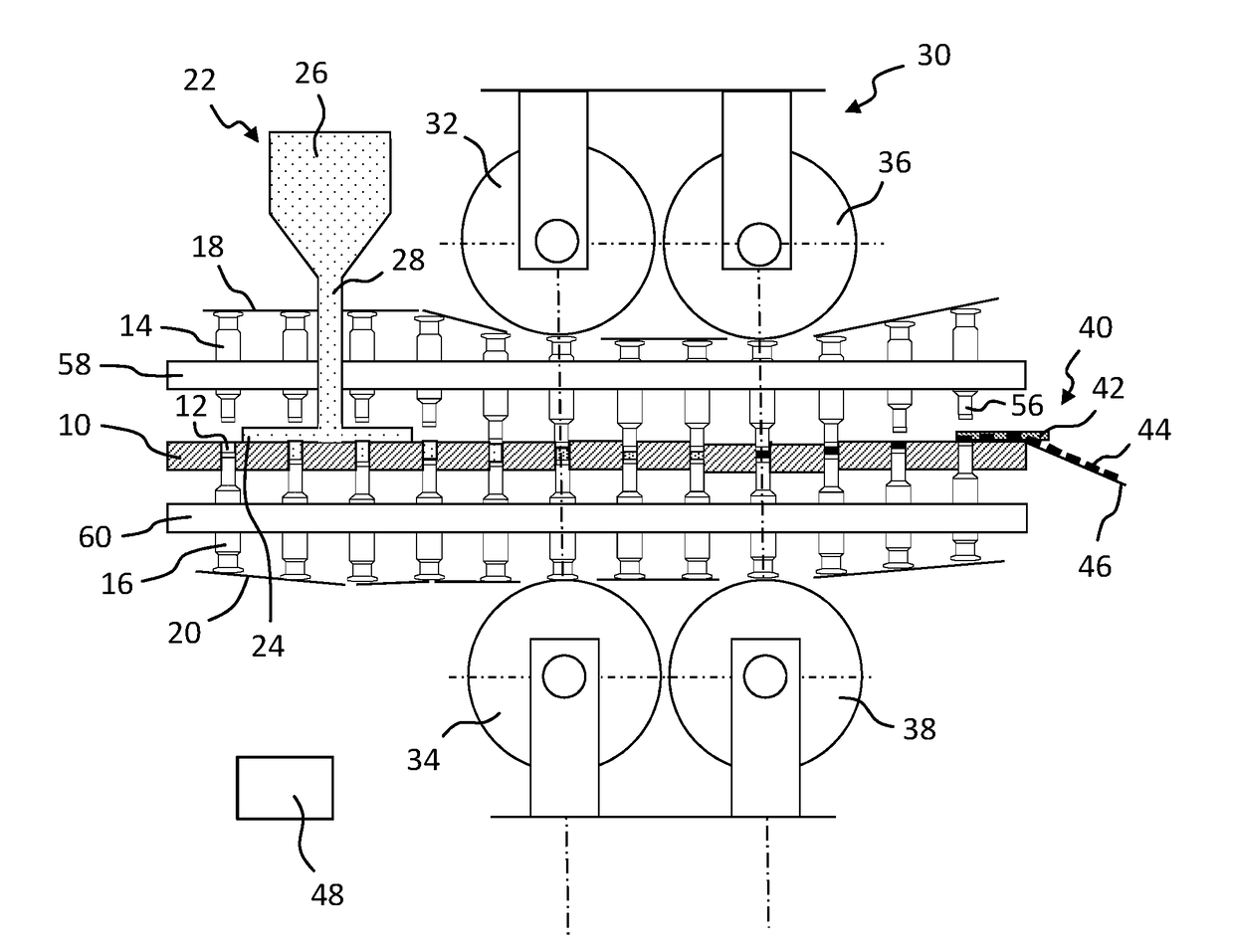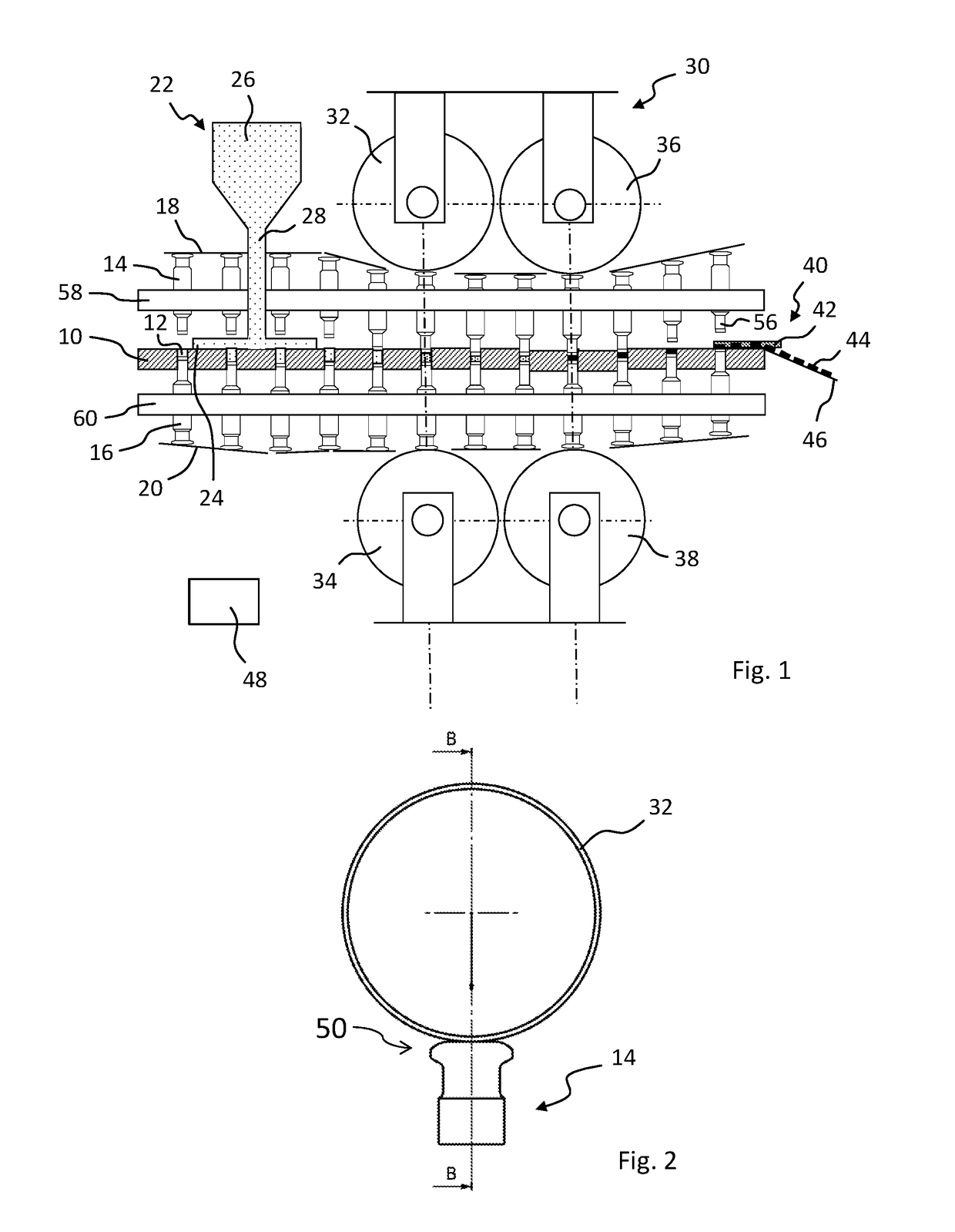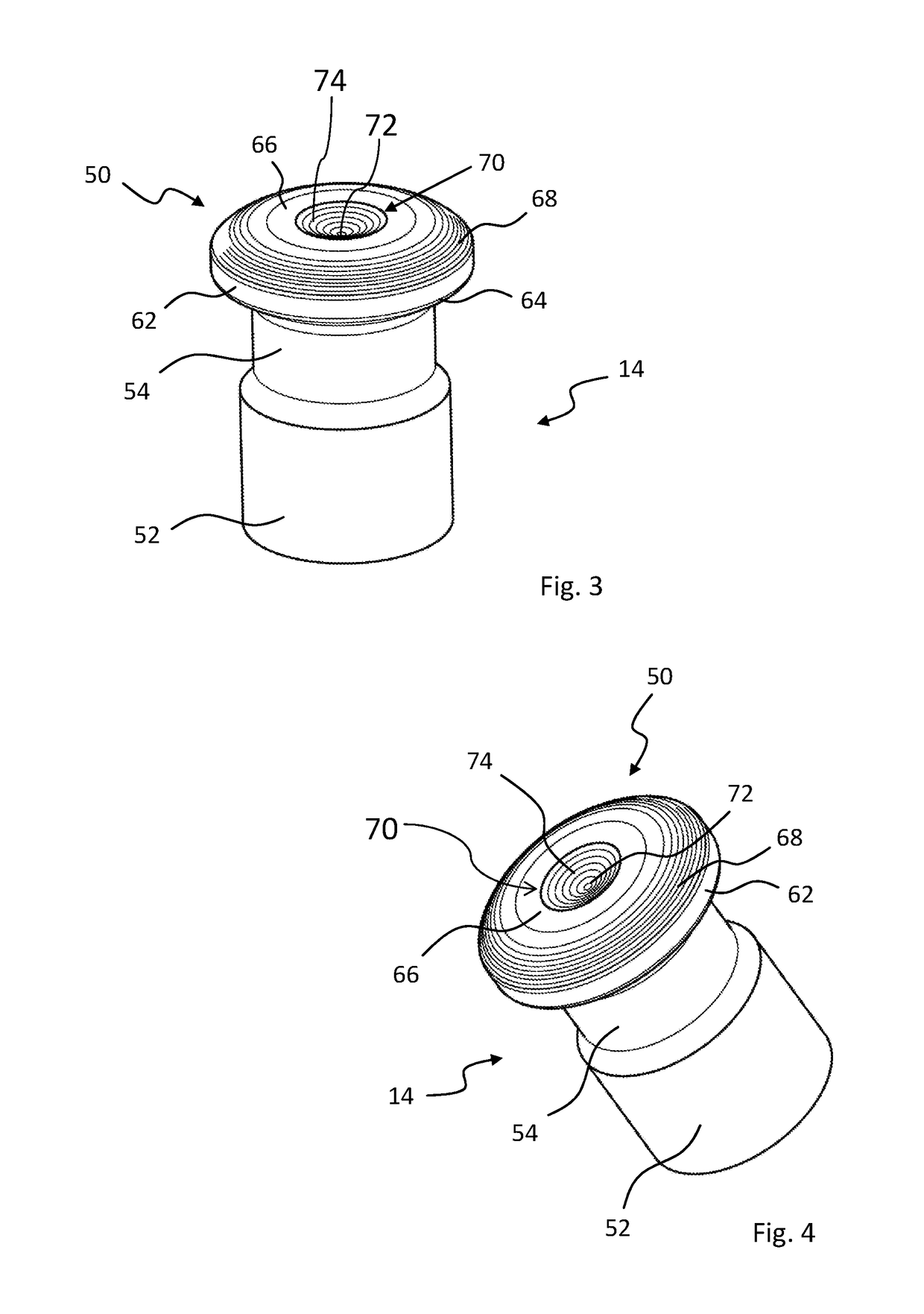Punch for a rotary press
a rotary press and punch head technology, applied in the field of punching for rotary presses, can solve the problems of defective punches transferring material into the running surfaces, entire punch sets to be damaged in a chain reaction, and traces of wear, so as to reduce mechanical weakening of the punch head, simplify the cleaning process, and improve the effect of cleanability
- Summary
- Abstract
- Description
- Claims
- Application Information
AI Technical Summary
Benefits of technology
Problems solved by technology
Method used
Image
Examples
Embodiment Construction
[0044]The rotary press shown in FIG. 1, in particular the rotary tablet press, comprises a rotor that is rotationally driven by a rotary drive (not shown) with a die plate 10 which has a plurality of cavities 12. The cavities 12 can for example be formed by holes in the die plate 10. Furthermore, the rotor comprises a plurality of upper punches 14 and lower punches 16 that rotate synchronously with the die plate 10. In each case, a pair consisting of an upper punch 14 and lower punch 16 is assigned to a cavity 12. The axial movement of the upper punch 14 and lower punch 16 during the rotation of the rotor is controlled by upper control cam elements 18 and lower control cam elements 20. The rotary press moreover comprises a filling apparatus 22 which has a filling chamber 24. The filling apparatus 22 further comprises a funnel-shaped filling material reservoir 26 which is connected by a feed section 28 to the filling chamber 24. In this manner, the powdered filling material in the pr...
PUM
 Login to View More
Login to View More Abstract
Description
Claims
Application Information
 Login to View More
Login to View More - R&D
- Intellectual Property
- Life Sciences
- Materials
- Tech Scout
- Unparalleled Data Quality
- Higher Quality Content
- 60% Fewer Hallucinations
Browse by: Latest US Patents, China's latest patents, Technical Efficacy Thesaurus, Application Domain, Technology Topic, Popular Technical Reports.
© 2025 PatSnap. All rights reserved.Legal|Privacy policy|Modern Slavery Act Transparency Statement|Sitemap|About US| Contact US: help@patsnap.com



